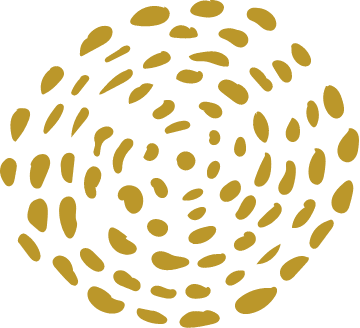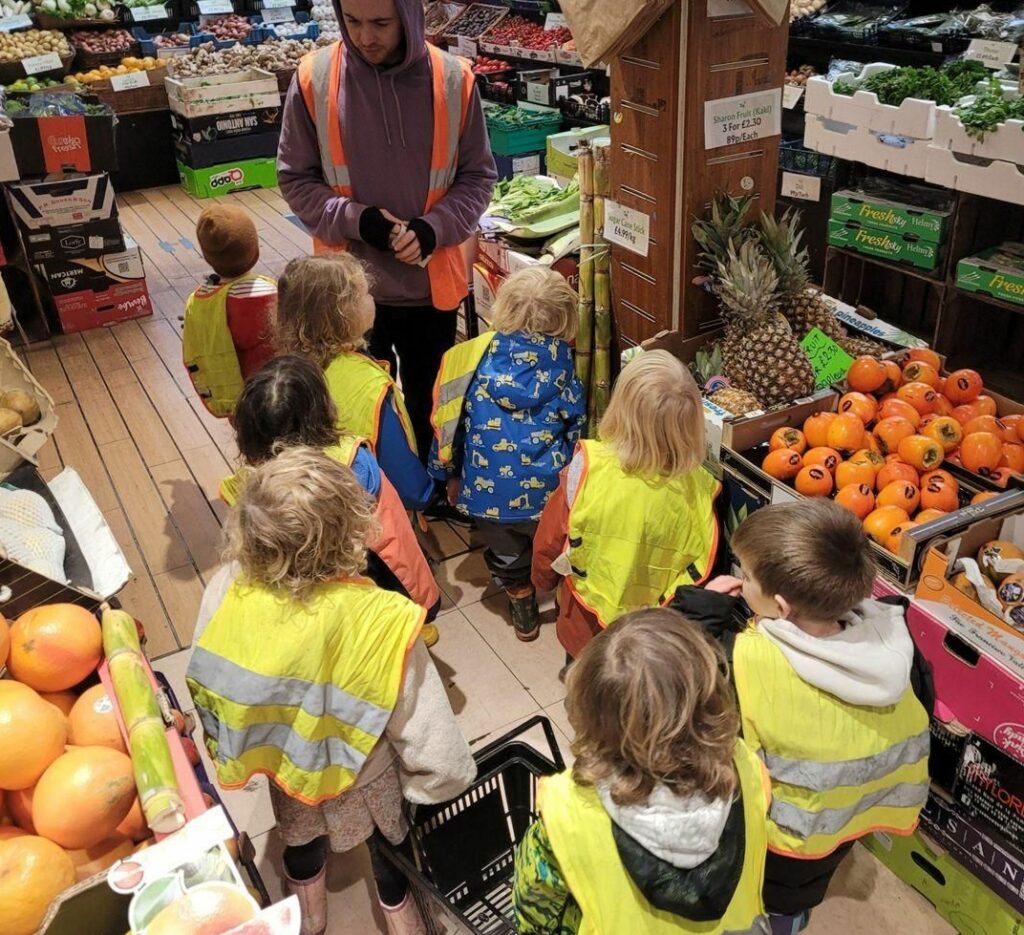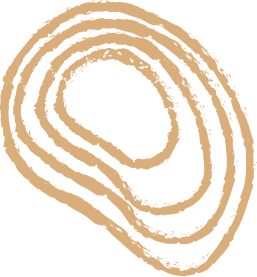
Your child’s Family Group (or pod) will include children of different ages, 0 to 2 years (Hedgehogs) and 2 years to school age (Foxes). This helps them to develop meaningful relationships with their key people as well as with other children. Being in a group with children of different ages builds their respect and sense of responsibility for children younger and older than themselves – the older children help the younger ones, and they all take responsibility for their environment together. We also mix the two family groups, whenever possible.
From helping to tie shoelaces to cooking for each other, feeding our animals to making bug hotels, raising money for local charities and using local shops, raising awareness for and celebrating inclusion and diversity the children learn what it means to take care of other people and creatures and to be part of a community.
The social strand of our curriculum is broken down into six sections:
How does this look in practice……….

At Young Friends Kindergarten we hope to send our children on to school with highly developed executive function skills.
These skills enable us to plan, focus attention, remember instructions, control impulses and juggle multiple tasks successfully.
Great executive function leads to Self-Regulation (the ability to control thoughts, emotions and behaviour to accomplish a goal) and a highly developed Theory of Mind (the ability to take on someone else’s perspective or put yourself in their shoes).
We focus on building children’s self-confidence and self-awareness. It’s about enabling them to initiate activities and conversations, reflecting on different behaviours and understanding we are all different. To support our children to build on their self-regulation skills and name their emotions we use the Just Right Programme.
The Just Right programme is used to help children self-regulate and is built round a scaling system, with four colour ‘zones’. It helps children understand and communicate the emotions they are experiencing and how they can go about positively managing them. It helps them understand what makes them feel ‘just right’ and when they are feeling this – for example, when they are calm and alert and able to respond positively to whatever is happening in their environment.
The four colour zones are:
The colour coding replaces the need to use a lot of complex words to describe emotions – words which, to young children, can seem vague, confusing or even worrying.
Key persons and buddies get to know their children’s ‘triggers’ and what each colour looks like to the individual. A child who is needing support with their behaviour and emotions will have a Just Right Profile so all staff know how to best help them.
At Young Friends, we know calm-down moments, rebooting, and meditation are crucial for early childhood learning and development as they promote emotional regulation, cognitive growth, and overall well-being. In these formative years, children experience rapid brain development and are highly sensitive to their environment. We offer mindfulness times both before and after lunch, as this can be quite a tricky time of day. We use many different methods e.g. sensory circuits, child meditation/ breathing exercises and yoga.

Our nature environment and ethos enables children to develop their fine and gross motor skills (needed for crawling, walking etc through to pen control). Through this, they begin to listen to their body and gain some control. We spend the majority of our day outside either in our magical woodland garden, here at the kindergarten or out on trips.
Our trips are an important part of enabling our children to feel a part of the local community and to further enrich their experience with us. We go on daily trips for many different reasons:
We encourage an interest and understanding of our children’s community and culture, and the community and culture of others. We do this through local trips, activities, sustained shared thinking and persona doll sessions.
We model and encourage inclusion and a respect for the beliefs of others. We acknowledge festivals important to our families and the local community but in a non-consumerist way. We celebrate the messages behind these festivals, for example instead of Christmas we talk about how we can help people who are not as fortunate as we are. We celebrate the seasons and special days happening in the nature calendar.
We ensure our children develop and use their ‘voice’, whether verbal or non-verbal and to hear the voices of others. The corner stone of our pedagogy is sustained shared thinking (SST) and schema theory.
SST happens between two or more people. This will most frequently be between an adult and a child, but it may also be between children, if one child is a ‘more knowledgeable other’ (Vygotsky, 1978). It is an active and creative process, and both parties must contribute to the thinking.
This is not the traditional ‘teacher’ role, where the adult tells the child something they don’t know. It is a true two-way exchange with information flowing both ways, so the teacher also learns from the child. This is the ‘shared’ element of SST.
It is an intellectual way to solve a problem, clarify a concept, evaluate activities, extend a narrative etc. This may be a practical problem or a theoretical one, such as ‘How many bricks do you think we will need to build this tower?’ or ‘I wonder how much the moon weighs?’
SST can be applied to everything we do, at any time. It is an important part of our pedagogy so must be embedded in all our interactions, enabling us to develop and extend ideas and activities. This is the sustained part of SST. A problem might be solved, or a concept is explained, but the deep-level learning that stays with children and can be built upon occurs when the thinking is extended.
Communicating in this explorative, reciprocal way is perfect for language development and can be used at any age, whether the child is verbal or non-verbal.
In summary, SST conversations are in-depth, extended and genuine conversations that can be between adult and child or child and child.
Our Young Friends Curriculum encourages respectful friendships and empathy. We enable children to develop theory of mind (the ability to ‘tune in’ to someone else’s thoughts) through our interactions and our free flow environment.
Instead of following a set activity, being told what to learn, or placed in groups according to age our children are free to explore their own interests, ideas and friendships. This helps them become more independent, motivated to learn and also helps children develop social and emotional skills.

Young Friends Kindergarten
89 Holland Road
Hove
East Sussex
BN3 1JP
t: 01273 735 100
e: enquiries@youngfriends.co.uk